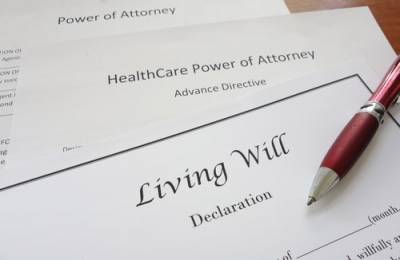 28 N. 1st St., Suite 101, Geneva, IL 60134
28 N. 1st St., Suite 101, Geneva, IL 60134
Recent Blog Posts
How Do Trusts Work?
 More and more people are choosing trusts in place of or in addition to traditional wills. There are quite a few advantages to using trusts. Your beneficiaries will probably not need to go through probate before they can receive their gifts. You can gradually distribute money over time instead of handing your beneficiaries a lump sum, providing long-term financial benefits. Trusts can also help you keep everything private, as no one but your beneficiaries and trustee should be able to even see your trust document. Trust administration is usually less costly than probate as well.
More and more people are choosing trusts in place of or in addition to traditional wills. There are quite a few advantages to using trusts. Your beneficiaries will probably not need to go through probate before they can receive their gifts. You can gradually distribute money over time instead of handing your beneficiaries a lump sum, providing long-term financial benefits. Trusts can also help you keep everything private, as no one but your beneficiaries and trustee should be able to even see your trust document. Trust administration is usually less costly than probate as well.
However, there is still quite a bit of confusion about how trusts actually work. There is still a misconception that trusts are mainly for the very wealthy, when in fact, almost everyone could benefit from having a trust as part of their estate plan. If you are interested in learning how a trust could benefit you and your beneficiaries, you should contact an estate planning lawyer for more information.
Questions You Need Answered Before Buying a Home
 The decision to buy a home is a big one. Purchasing, rather than renting, is a long-term investment. There are quite a few advantages to buying a home, but there is also some risk involved. The residential real estate market is fast-paced and competitive at the moment. It can be difficult to do a thorough investigation and “jump on” a place quickly enough. Before you pull the trigger on a place and sign a potentially decades-long mortgage agreement, there are a few questions you should find the answers to. It is best to have an attorney helping you to make sure that you have all the pertinent information and fully understand what you are signing at closing. Failing to make sure you have the right information could lead to unpleasant surprises down the road.
The decision to buy a home is a big one. Purchasing, rather than renting, is a long-term investment. There are quite a few advantages to buying a home, but there is also some risk involved. The residential real estate market is fast-paced and competitive at the moment. It can be difficult to do a thorough investigation and “jump on” a place quickly enough. Before you pull the trigger on a place and sign a potentially decades-long mortgage agreement, there are a few questions you should find the answers to. It is best to have an attorney helping you to make sure that you have all the pertinent information and fully understand what you are signing at closing. Failing to make sure you have the right information could lead to unpleasant surprises down the road.
Answers You Need Before You Buy a House
If this is your first time buying a house, you may not be familiar with all the terminology used in real estate. Even experienced homebuyers may have difficulty understanding every clause in the documents they will be asked to sign at closing. This is another reason that you should involve an attorney in a home purchase - you will know exactly what everything you are signing really means.
How Long Does an Eviction Take in Illinois?
 Your tenant stopped paying rent, or they are violating the terms of their lease, such as by subletting without permission. Or maybe their lease term is up, and they will not renew or leave. They could even be using your property illegally, such as by selling drugs out of it. Whatever the reason is, you need your tenant out and you need them out soon.
Your tenant stopped paying rent, or they are violating the terms of their lease, such as by subletting without permission. Or maybe their lease term is up, and they will not renew or leave. They could even be using your property illegally, such as by selling drugs out of it. Whatever the reason is, you need your tenant out and you need them out soon.
Depending on the grounds for eviction, and whether your tenant manages to fight back convincingly, it could take anywhere between a few weeks and a few months. While it may be frustrating to have a bad tenant essentially holding your property hostage, these rules and procedures are in place to protect people from being forced out of their homes on too little notice or for unlawful reasons. You will want to be represented by an attorney during this process.
Factors That Can Impact the Eviction Timeline
In the best-case scenario, your tenant will receive your notice of intent to evict them and simply leave on their own. No one wants to have an eviction on their record if they can avoid it. If your tenant chooses to vacate on their own, you will not need to take any further action.
5 Things Not to Do During a Bankruptcy in Kane County
 There are a lot of different reasons that people ultimately choose to declare bankruptcy. Anything from a single unexpected medical emergency to a patch of unemployment can quickly cause a person to rack up debt they will not be able to pay off. Bankruptcy is based on the idea that people deserve a fresh start and there should be a way out of insurmountable debt. However, it is important that bankruptcies are handled correctly so that they do not lead to more legal issues.
There are a lot of different reasons that people ultimately choose to declare bankruptcy. Anything from a single unexpected medical emergency to a patch of unemployment can quickly cause a person to rack up debt they will not be able to pay off. Bankruptcy is based on the idea that people deserve a fresh start and there should be a way out of insurmountable debt. However, it is important that bankruptcies are handled correctly so that they do not lead to more legal issues.
Mistakes during bankruptcy can cause further financial difficulty rather than relieving financial strain. It is quite easy to slip up and make a potentially costly mistake. Your best bet is to have your bankruptcy handled by an attorney.
What Mistakes Should I Avoid When Declaring Bankruptcy?
Bankruptcy can be a very delicate legal procedure. Everything needs to be done correctly and in good faith. Some common mistakes people make during bankruptcy proceedings include:
What Are the Two Major Parts of Estate Planning?
 Estate planning means more than just writing your will. While a good estate plan may certainly include a will, there is a lot more to it than that. Testamentary planning - deciding what should happen to your property after you pass away - is an important part of estate planning. When most people think of estate planning, they are really thinking only about testamentary planning. Incapacity planning is an equally important part of estate planning.
Estate planning means more than just writing your will. While a good estate plan may certainly include a will, there is a lot more to it than that. Testamentary planning - deciding what should happen to your property after you pass away - is an important part of estate planning. When most people think of estate planning, they are really thinking only about testamentary planning. Incapacity planning is an equally important part of estate planning.
Incapacity planning allows you to prepare for the possibility that you could become incapacitated in your own lifetime as is common in old age. No estate plan is complete until both parts have been thoroughly addressed. The exact types of documents you will need to accomplish both goals depends on your own personal situation and preferences. It is best to work with a qualified attorney to develop a complete estate plan.
What is Testamentary Planning?
Two Options for Filing for Bankruptcy in Kane County
 If you are considering filing for bankruptcy, you may feel like you have very little control over your financial life or the bankruptcy process. This is not entirely true - people who file for bankruptcy in Illinois still have options. For most personal bankruptcy situations, there are two different types of bankruptcy your attorney will discuss with you to help you choose the best option. Chapter 7 and Chapter 13 bankruptcy filings can both lead to a new, debt-free life, but in different ways. Both types have benefits and drawbacks. The type of bankruptcy that will make the most sense for you will depend on your personal situation and preferences. It is important to speak with a lawyer to make sure that you have a complete understanding of how each type of bankruptcy will affect you.
If you are considering filing for bankruptcy, you may feel like you have very little control over your financial life or the bankruptcy process. This is not entirely true - people who file for bankruptcy in Illinois still have options. For most personal bankruptcy situations, there are two different types of bankruptcy your attorney will discuss with you to help you choose the best option. Chapter 7 and Chapter 13 bankruptcy filings can both lead to a new, debt-free life, but in different ways. Both types have benefits and drawbacks. The type of bankruptcy that will make the most sense for you will depend on your personal situation and preferences. It is important to speak with a lawyer to make sure that you have a complete understanding of how each type of bankruptcy will affect you.
What Happens When I File for Chapter 7 Bankruptcy?
Chapter 7 bankruptcy can create a quicker and cleaner path to freedom from debt, but the major drawback is that your assets will be liquidated. When you file for Chapter 7 bankruptcy, the court will appoint a trustee. The trustee will then be responsible for identifying your assets and selling them off in order to pay off your creditors as much as possible.
5 Things to Consider When You Create a Trust
 Estate planning is full of choices. Completing the process can give you control over how your property will be distributed after you are gone, as well as control over some of your own end-of-life decisions. Once you have decided to use a trust rather than a will as your primary testamentary tool, you still have quite a few decisions to make. Trusts can be revocable or irrevocable, and there are even more subcategories. You also get to set most of the terms of your own trust - these are highly customizable legal instruments.
Estate planning is full of choices. Completing the process can give you control over how your property will be distributed after you are gone, as well as control over some of your own end-of-life decisions. Once you have decided to use a trust rather than a will as your primary testamentary tool, you still have quite a few decisions to make. Trusts can be revocable or irrevocable, and there are even more subcategories. You also get to set most of the terms of your own trust - these are highly customizable legal instruments.
Your best bet is to talk with an estate planning attorney who is highly knowledgeable about the different types of trusts and how they can be written. After you explain your goals and give some information about your beneficiaries, your lawyer will be able to guide your decision from there.
Factors to Consider in Choosing a Type of Trust
You have quite a few things to consider when you go to create a trust. Be prepared for your lawyer to ask a lot of questions, some of which can be a bit personal. However, it is important that you answer openly so that your attorney knows what concerns to factor in when designing a trust for you. Things to think about include:
Which Debts Cannot Be Discharged in Bankruptcy?
 Bankruptcy can provide a way out for many Illinois families and individuals who have become buried in insurmountable debt. Both Chapter 7 and Chapter 13 bankruptcy filings can give you an opportunity to ultimately discharge most debts through different means. If you are considering bankruptcy as a solution to your debt, it is important to understand which debts can and cannot be discharged through the bankruptcy process. Before you file, it is a good idea to consult a qualified attorney who can help you make sure that bankruptcy will help you achieve your goal of becoming debt-free.
Bankruptcy can provide a way out for many Illinois families and individuals who have become buried in insurmountable debt. Both Chapter 7 and Chapter 13 bankruptcy filings can give you an opportunity to ultimately discharge most debts through different means. If you are considering bankruptcy as a solution to your debt, it is important to understand which debts can and cannot be discharged through the bankruptcy process. Before you file, it is a good idea to consult a qualified attorney who can help you make sure that bankruptcy will help you achieve your goal of becoming debt-free.
What Types of Debt Are Not Discharged During Bankruptcy Proceedings?
It may not seem fair that some debts can be discharged through bankruptcy, and you are stuck with others. Unfortunately, this is the reality. Whether bankruptcy would be helpful for you depends heavily on what type of debt you are struggling with. Even in bankruptcy, you will generally not be able to discharge:
4 Grounds for Eviction in Kane County
 You probably do not want to have to evict a tenant. The eviction process is rarely quick or simple. Generally, formal eviction proceedings are a last resort when a problem tenant refuses to leave on their own. As a landlord, you may face situations where you have little choice but to evict a tenant who is refusing to pay, destroying your property, or engaging in criminal activity. When these situations arise, it can be tremendously helpful to have an attorney who is experienced with eviction proceedings representing you. Renters have a lot of legal protections in Illinois, but there are still valid reasons for evicting a tenant that the courts will typically honor.
You probably do not want to have to evict a tenant. The eviction process is rarely quick or simple. Generally, formal eviction proceedings are a last resort when a problem tenant refuses to leave on their own. As a landlord, you may face situations where you have little choice but to evict a tenant who is refusing to pay, destroying your property, or engaging in criminal activity. When these situations arise, it can be tremendously helpful to have an attorney who is experienced with eviction proceedings representing you. Renters have a lot of legal protections in Illinois, but there are still valid reasons for evicting a tenant that the courts will typically honor.
What Are Some Legal Reasons for Evicting a Tenant?
The most common reason people get evicted is for nonpayment. However, there are good legal reasons to evict even a tenant who is up to date on rent. Grounds for eviction in Illinois include:
Chargeable vs. Dischargeable debts: What you need to know

Contrary to popular belief, filing for Chapter 7 bankruptcy does not mean that all your debts are wiped. The possibility of discharging a debt depends on its nature.
Dischargeable debts are those that you are not legally responsible for after filing for bankruptcy. They include most consumer debt such as medical bills or credit card debt.
Non-dischargeable debts are those you have to continue paying even after declaring bankruptcy. These include child support or alimony, debts that you did not disclose when filing for bankruptcy, student loans, fines, or penalties owed to government entities, among others.
When discharge may be denied
In some cases, a creditor can dispute their debt's status and have it declared non-dischargeable. For instance, if you lied in your bankruptcy application or hid some assets to defraud creditors, the judge may deny discharging you from such debt. Additionally, if you file for bankruptcy too frequently, it may be considered an abuse of the system and lead to a denial of discharge.


 331-222-7978
331-222-7978

